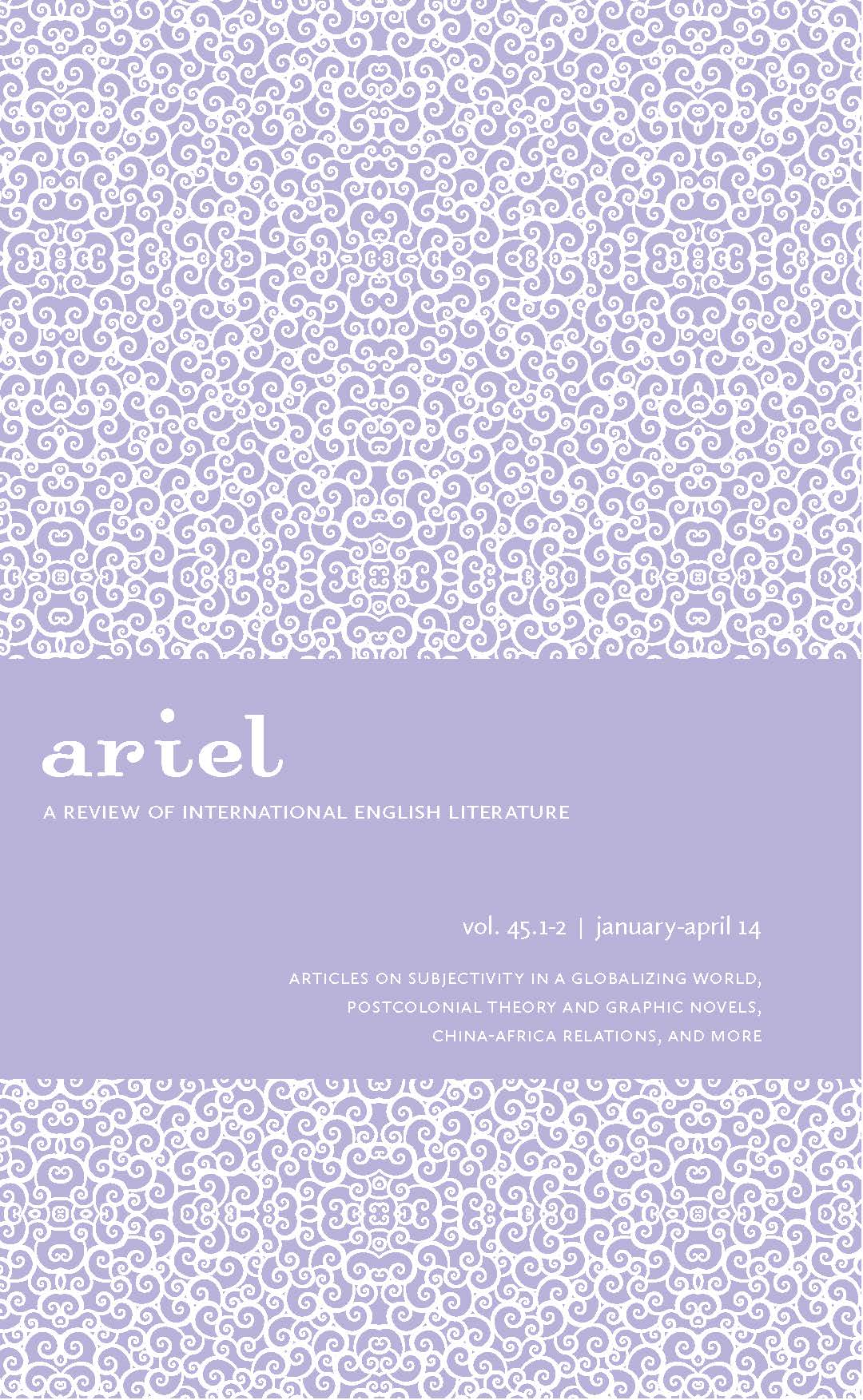Signifying (Non)Linguistic and Subliminal Spirituality: Caryl Phillips's Crossing the River (1993).
Keywords:
postcolonialism, slavery, western settlement in the USAbstract
In "West," the second narrative of his 1993 novel, Crossing the River, author Caryl Phillips showcases the life story of Martha, a former slave. In doing so, Phillips privileges Martha’s recounting of her own trials. At times, Martha's idiom seems to demonstrate an interspersed, omniscient perspective, and she shares in the production of the text. What results is the viability of Martha's spirit: Phillips uses her suffering to demonstrate her resilience. The author engages intermediary verbal and non-verbal cues that enter Martha (and that project the narrative) into various states of (divine) consciousness. This style shows that Martha operates from a very sophisticated and individualized system of signs.Downloads
Additional Files
Published
2014-04-28
Issue
Section
Perspectives


